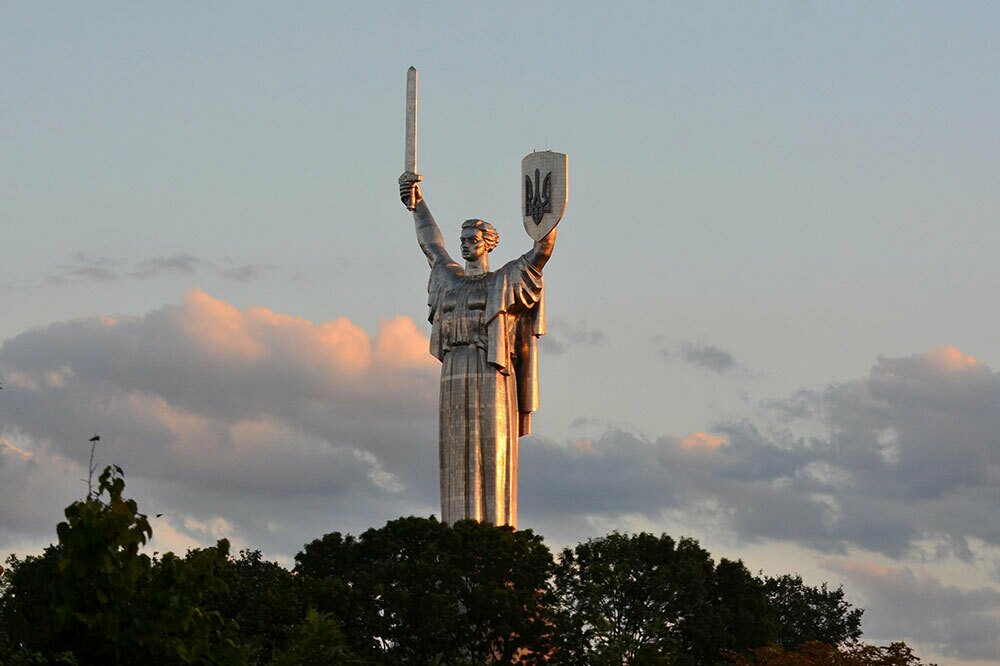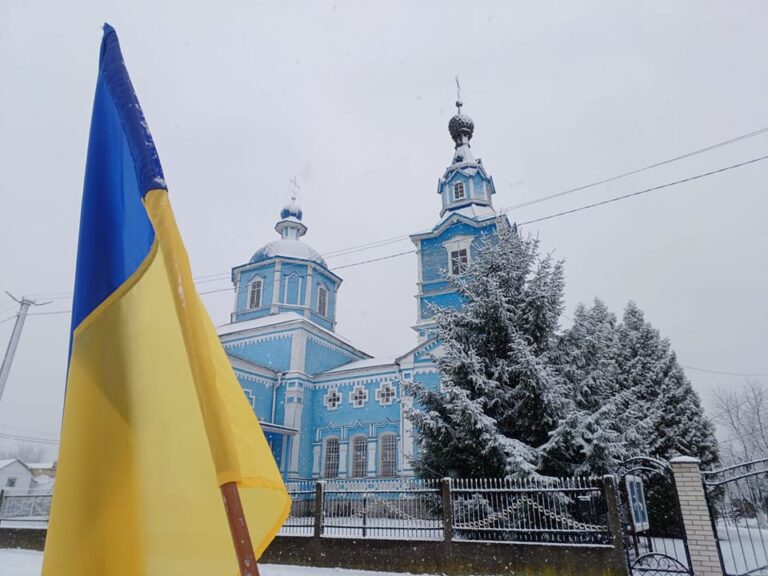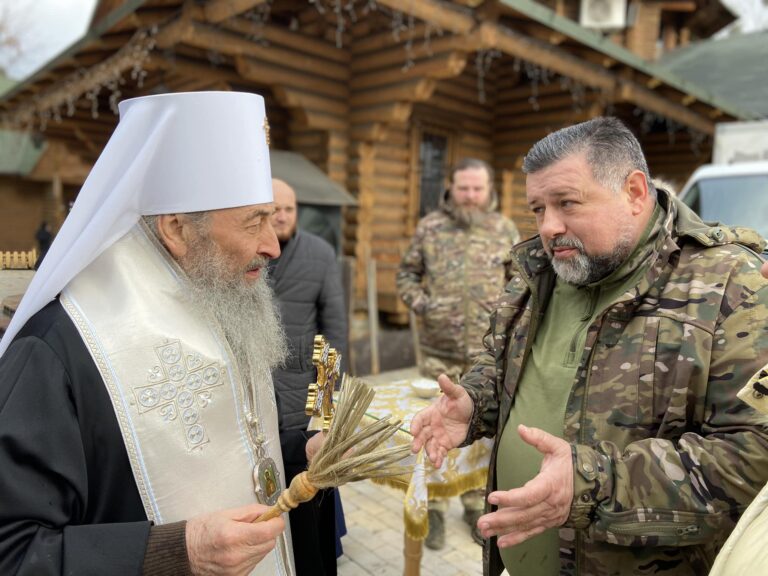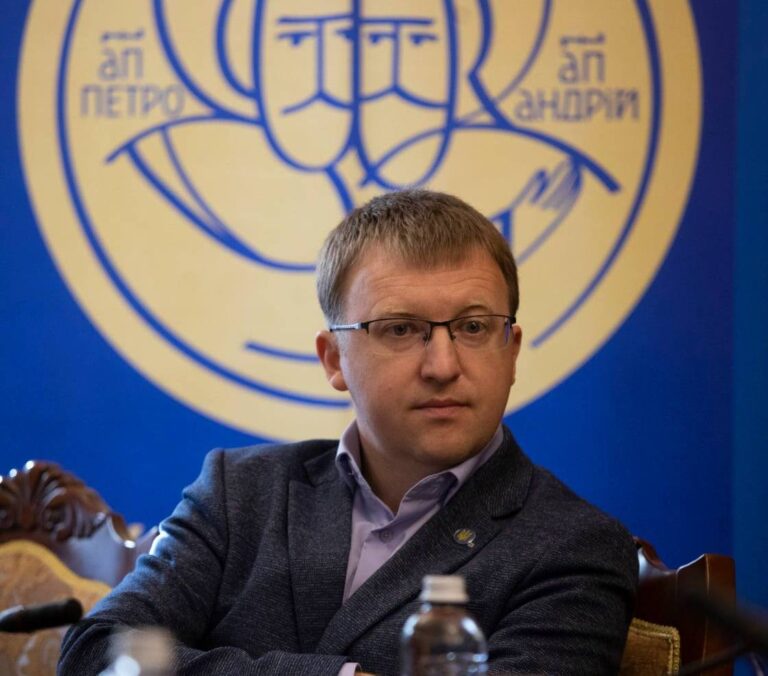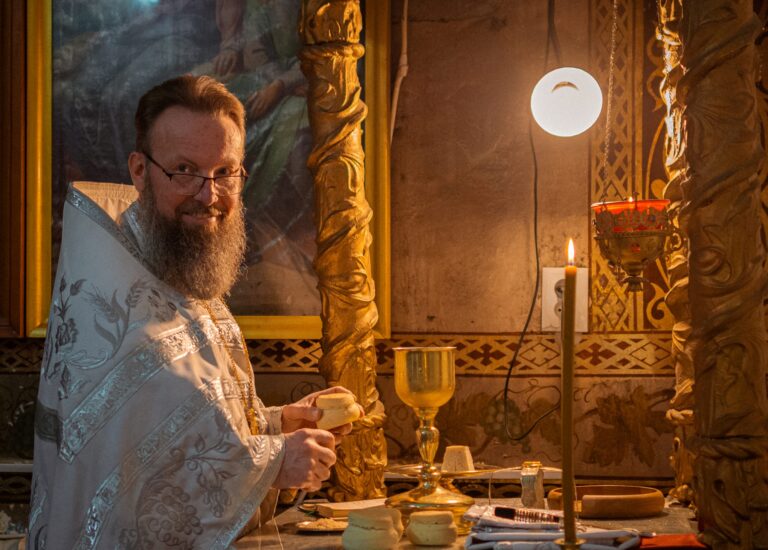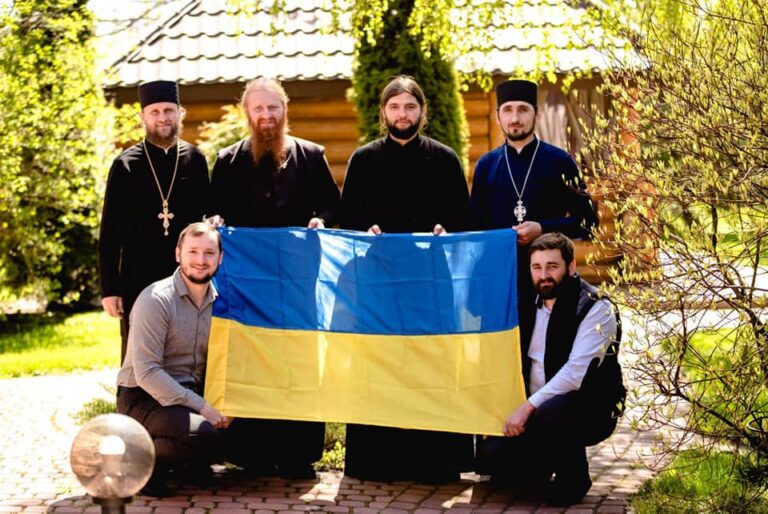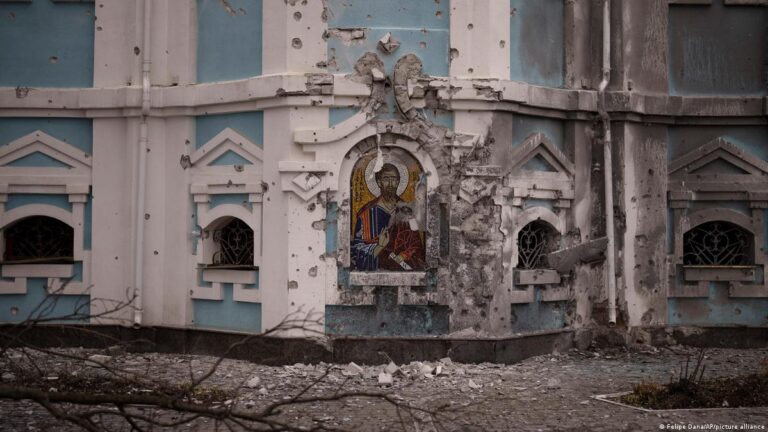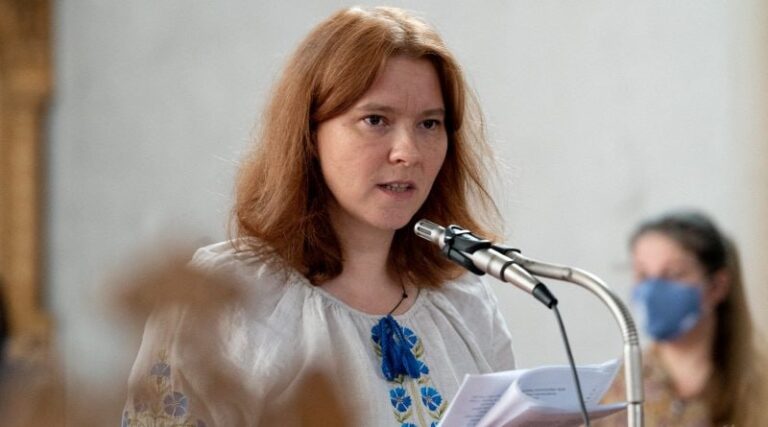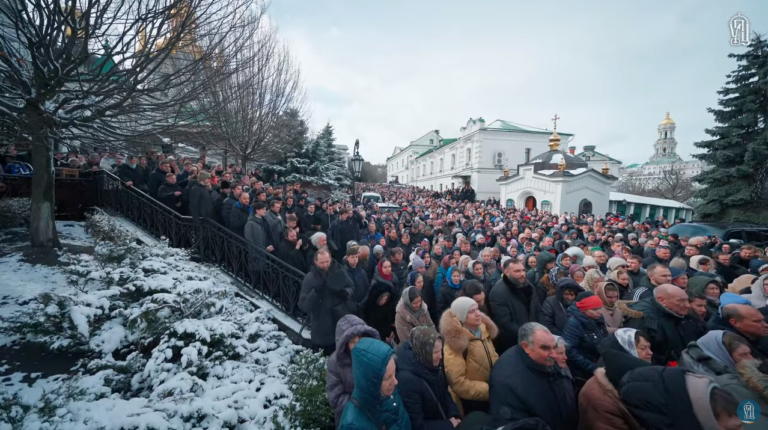We invited some academics from Europe and the USA to assess the legislative initiatives in the religious sphere in Ukraine. We strive to find out what an adequate state policy can be in a country that sees its future in the European Union.
Here is the first text in English.
The answers translated into Ukrainian are available here: Не піддавайтеся спокусі хибної «єдності»
Next articles in this series:
- Expert №2: Russian documents should not determine the fate or name of the UOC, as well as any organization in Ukraine / Документи росії не повинні визначати долю чи назву УПЦ, як і будь-якої організації в Україні
- Expert №3:The Turkish authorities disputed the right of the Patriarchate of Constantinople to use the concept “Ecumenical” for its self-name / Влада Туреччини оскаржувала право Константинопольського Патріархату називатися Вселенським
- Expert №4: The actions against the UOC have done much more damage to Ukraine than help / Дії проти УПЦ завдали Україні набагато більше шкоди, ніж користі
(It was our conscious decision not to open the names of the experts now. According to our agreement with them, all comments will remain confidential for at least three weeks from the beginning of the publication. After that, each expert is free to decide whether he/she is ready to open his/her name. Why did we do that? Read more here: Seven questions to international experts about religious freedom in Ukraine)
Question no. 1. On the requirement to rename the UOC
We are believers of the UOC, and as citizens of Ukraine, we feel in a certain impasse.
On the one hand, the so-called “law on renaming” no. 2662-VIII, adopted on December 12, 2018, came into force. According to the decision of the Constitutional Court of Ukraine on December 27, 2022, it was recognized as not being contrary to the Constitution of Ukraine.
In 2019, the religious expertise of the Ministry of Culture was published, as well as in 2023 the conclusion of the religious expertise of the SEFC (DESS) – both of them represent the UOC as a component of the Russian Orthodox Church. Both documents are disputed by the UOC in the courts.
From this perspective, we, the faithful of the UOC, are reproached: “Your Church is not renamed in accordance with the current law. Why does the UOC not comply with the law? If you are for the rule of law, follow the law!”
On the other hand, we as members of this religious organization perceive the state’s attempts to indicate to a religious organization what it must be called and what data must be mentioned in its title, as discrimination on the basis of religion and unacceptable humiliation. Because we, as citizens of Ukraine, are legally forced to play by the rules of the aggressor state. It is also obvious that the Russian Orthodox Church will not remove the UOC from its statutory documents, therefore, we will be in one or another way subject to the law on renaming.
What does this situation look like in terms of international standards of religious freedom and human rights? Are there precedents in other democratic states with the rule of law where authorities “bring order” in the religious sphere, setting strict restrictions on the titles of religious organizations?
***
ANSWER.
By all evidence, there are no such precedents. Controversial cases mostly concern small communities commonly labelled as sects. The name is (treated as) part of the general profile and inner constitution of a community.
For instance, the ECHR case invoked in the judgment by the Ukrainian Constitutional Court (Ilyin vs. Ukraine) at a closer look concerns a small community of the so-called “Unification Church” (better known via the name of its founder, Korean reverend Sun Myung Moon). The ECHR, seeing no violation of article 9 of the European Convention on Human Rights, not only mentioned the fact of a probably misleading name, but treated this name as part of a constitution of this community that would be in contravention with existing law.
In other words, it is first and foremost the inner constitution of a community that counts.
Secondly, registration itself as a religious organization might be rejected if registering institutions have well-founded doubts about whether the actual aims and the inner constitution of the organization in question are actually of a religious character.
One might think here about problems which some European countries express with the Scientology organization (e.g. Switzerland) or the rejection of the registration of the “Church of the Flying Spaghetti Monster” in the Netherlands, because of its obviously parodistic character. In that case, the name, indicating a kind of self-identification, is only part of the profile, together with inner structure and, for instance, statutes.
There seem to be no cases where a community or organization is registered as genuinely religious, with no actual obstacles found in its inner constitution, but then forced to change its name in order to “tell the truth” about its allegedly hostile character. In other words, had the UOC passages in its statutes and constitutive documents, which would expressively disapprove of, or even call for the destruction of Ukrainian legal or social order, or for the state’s territorial integrity, that would have been sufficient reason for rejecting registration altogether (both on general level and on the level of individual parishes, or communities). That is not the case. In case individual members, communities or parishes actually would display actions directed against legal and social order, or the state’s territorial integrity, this is a matter of criminal law, and of relevance for these individual actors, not the entire religious organization.
Question no. 2. On international mechanisms for challenging the renaming requirement
According to the “law on renaming”, our Church must necessarily indicate in its statutory title the full title of the foreign religious organization of which it is a part, or “mark its place in the structure of a foreign religious organization”.
In the Statute of the Russian Orthodox Church, our Church is called “Ukrainian Orthodox Church”. Therefore, as far as we understand the logic of the current law, the title “Ukrainian Orthodox Church within the Russian Orthodox Church” would correspond to the law.
However, the 2015 ODIHR/OSCE recommendations (“Guidelines on the Legal Personality of Religious or Belief Communities” the OSCE Office for Democratic Institutions and Human Rights) indicate: “In the regime that governs access to legal personality, states should observe their obligations by ensuring that national law leaves it to the religious or belief community itself to decide on its leadership, its internal rules, the substantive content of its beliefs, the structure of the community and methods of appointment of the clergy and its name and other symbols. In particular, the state should refrain from a substantive as opposed to a formal review of the statute and character of a religious organization”.
What legal opportunities do we have as citizens of Ukraine to challenge the law on renaming at the international level, if all possibilities at the level of state legislation are exhausted? Is there none?
***
ANSWER.
Seen the above-mentioned principles (the inner constitution counts, represented by the name, not only the name itself), which guided relevant decisions of the ECHR (and seem to be somehow misrepresented in quoted Ukrainian decisions), the ECHR appears as an option. The Ukrainian state possibly exceeded its competences at this point.
With regard to article 9 of the ECHR, “the State’s general role is that of a neutral and impartial organiser of the exercise of various religions, faiths and beliefs, in order to preserve public order, religious harmony and tolerance in a democratic society […].” That implies, for the sake of a completeness of the picture, that religions, faiths and beliefs and their related organisations on various levels can well be scrutinized in order to assess, whether and to what extent they actually do contribute to “religious harmony and tolerance in a democratic society” (and not the opposite – all this being an implication of the paradox known to religious scientists as the Böckenförde-paradox).
Still more generally, it deserves to be mentioned that in historical perspective regulations concerning religious freedom and freedom of conscience always had ad certain implicit timelines to them – starting as early as in the 16th and 17th century. A representative phrasing might sound like: “For the time being, we keep peace, as long as we haven’t settled our – religious, philosophical, ideological – differences, but commit ourselves to further attempts in that direction by dialogue, and without any forms of violence”. Toleration acts since early modern times were usually, although this is rarely mentioned, accompanied by declarations of members of different confessions to continue with their efforts to reach greater unity and harmony in the future. Similarly, and in a more practical or political manner respectively, existing definitions of “tolerance” offer “the right for self-justification” as a synonym for such “tolerance” or “religious freedom”.
In more concrete terms, the UOC when appealing to the ECHR would best emphasize, at the same time, its readiness for dialogue with other religious organizations (including the opposing OCU), refrain from derogatory statements (including questions of “canonicity”, which for ECHR and similar institutions are irrelevant) and point at its merits – or that of a majority of its members – in the defense of Ukraine, in the current and horrible situation. All this, to be sure – initiatives for dialogue with opponents, and efforts to participate in the country’s defense – is already there, and can be pointed at.
Question no. 3. About Religious Expertise of the State
The website of the human rights organization “Forum-18” states that “the concept of a religious ‘expert examination’ is vague and legally questionable”. There is also a warning that across the post-Soviet region, including in Belarus, occupied Crimea, and Central Asian states “expert analyses” are often used to restrict freedom of religion or belief and other violations of human rights, including a reason for imprisonment.
In your opinion, in what cases and contexts are state religious expertises relevant? Is the expertise of the SEFC/DESS and its Conclusion on the Statute on Management of the UOC an instrument for restricting the religious freedom of the UOC faithful?
***
ANSWER.
Generally, the threat to misuse (or apply in a biased manner) expertise in religious science occurs wherever there is uncertainty or vagueness either with regard to juridical definitions, or within the case under scrutiny itself.
For instance, what is usually seen as legitimate limits to religious freedom and freedom of belief has to do with terms like “public order” or “offense of religion or religious feelings” or even “assaults directed towards religion” of other individuals. Such terms are mentioned in EU legislation as well. Both terms are yet difficult to be concisely defined, and offer space for various interpretations (although not limitlessly). So with regard to “public order” limits to religious freedom can be set (or declared legitimate by a court) in individual cases, in accordance with either a rather liberal understanding of what might be tolerable (usually within EU countries), or quite restrictively (as has often been the case in recent years concerning “religious extremism” in the RF).
In this concrete case, and beyond the level of actual actions and statements that would be subject not to religious law, but to already existing criminal law, there remain two questions: First, is the affiliation with a religious organization situated in another country (involved in aggression towards the country in question) in itself, and in rather formal terms already a “threat”? (The aggression itself undoubtedly is, and such affiliations might understandably raise suspicion, while the answer is less obvious.)
Secondly, the mentioned expertise deliberately points at some remaining uncertainties in the UOC (the unclear status in pure canonical terms, somewhere pending between full autocephaly and autonomy with some theoretical ties remaining; the statutes of the ROC which still stuck to the UOC as being an affiliated member; some allusions to the historical roots in remaining phrases of the new UOC statutes).
The question can aptly be asked whether, first, these remaining, vague links are actually relevant. The unclear status in terms of canon, ecclesiastical law is certainly not, as canon law is one thing and concerns inner affairs of a religion (Orthodox Christianity in this case), secular law including religious freedom is another. Formally remaining affiliations (which in fact after May 2022 are minimal) in itself might equally be considered irrelevant, as long as cannot be proven that they stand behind concrete hostile or destructive actions.
Secondly, the question is what the UOC, except declaring itself independent from the ROC in far reaching terms, can actually do about remaining ties? To reach the consent of the ROC to be removed from the ROC statutes completely is highly unlikely. Something similar applies for allusions to some historical roots the UOC might have in common with Orthodoxy in Russia, and which even before 2014 and 2022 have been subject to differing interpretations (in terms of a peculiar, distinct character of a “Kyivan Christianity”) also on the part of UOC hierarchs (like the late Metropolitan Volodymyr).
Seen from this angle, the mentioned expertise, while not inventing anything or unduly twisting factually existing problems, uses existing vagueness otherwise difficult to eliminate in favor of an interpretation which is, to put it cautiously, far from being without alternatives.
Question no. 4. On changing the subordination of religious communities
Along with the constant destruction of hundreds of church buildings of the UOC as a result of the invasion of the Russian Federation into Ukraine, we experience many sad and even tragic situations around the church buildings in the context of the so called “changes of belonging from the UOC to the OCU”.
On the basis of the “law on changes of belonging” no. 2673-VIII of January 17, 2019, many UOC parishes lost access to their church buildings. In part of such church buildings, the OCU has now its worships, some are closed, and meanwhile the parishes of the UOC that had worships in those churches buildings before, have to gather for worships somewhere, including various non-adapted premises or even in the forest.
That means that the state intervened in the procedure for determining the belonging of religious communities and this had serious consequences for many UOC believers.
Repeatedly I heard: “There are no violations of the rights of the UOC believers, there are no problems with changes of belonging”. However, many of us, believers of the UOC, are acutely aware of the reality of these problems, we try to document and challenge them in a legitimate way.
Can we consider that the law no. 2673-VIII on the change of subordination/belonging meets international standards of human rights and religious freedom? Or on the contrary, this is the level of state intervention in the functioning of religious organizations that is inappropriate in a democratic state with the rule of law?
***
ANSWER.
The law leaves quite a couple of questions open, or untreated, and therefore space to raise doubts. Apparently, here and in other cases, assistance or advise theoretically available from the OSCE or ECHR has not been looked for.
Basically, seen from the angle of state neutrality, the state would not be authorized to impose any patterns concerning inner processes of decision making upon a religious community or organization. This is usually an inner affair of the religious community itself.
In his role – in a rationale active also behind “freedom of religious belief” and “freedom of conscience”, and as pointed out before with regard to, for instance, article 9 of the ECHR – as not only a neutral instance, but also a kind of judge for social peace, stability, coexistence and dialogue – the state might address tensions that occur between the inner constitution of a religious organization, and the rights of the members of this organization as citizens of the state. But even then, in order to remove such tension, the state might – theoretically – rather ask the organization or community to itself adapt its inner constitution or procedure of decision making accordingly, not to impose something from the outside. Equally theoretically, the religious organization addressed by such request, within the framework of a democratic state and the rule of human rights, might be rightfully expected to execute such adaptations. However, more practical or procedural standards to settle such issues so far apparently do not exist in soundly defined terms.
As for the property of religious sites and buildings, they can be owned by juridically defined persons, which to be come a religious community must be lawfully registered. Once that has happened, a community has the right to pursue and hold such property. A different story concerns, as often the case in Ukraine, state ownership on sites of “cultural heritage” (the most prominent being the Kyivan Monastery of the Caves). In such cases the decision to which religious organization leave the site for use is, formally speaking, rather a political one and without prescriptions within the framework of “freedom of religion”. One might argue, however, that the above-mentioned role of the state not only as a neutral bystander, but as a judge over a socio-political framework of stability, equal treatment and mutual tolerance would suggest a certain equivalence and good practice, and put obstacles to arbitrary decisions. Once more, however, there are no sound definitions of this role helping to assess more precisely, what that would imply, and forbid.
What remains unanswered in the laws as quoted here, at any rate, is what is to happen with the minority, more precisely the remaining “third” after related decisions (of changing jurisdiction). Are they enjoying their religious freedom only as long as they are part of a registered community? Freedom of religious belief in this case would even theoretically imply that they have the right to register separately, and become a juridical person including the right to pursue and use property destined for use connected with religious practice.
The ECHR in recent decades has at least two times had to deal with splits between branches of the Orthodox church in a country, and refusal of the state to register one of these branches (in Bulgaria since the late 1990s, in Moldova in 2001) and has always decided in favor of registration of all branches, regardless of their controversies (which were about theological, sometimes political, for example communist and post-communist issues). These inner controversies were to be settled without state interference, but registration was regarded as a pre-condition to grant access to the game (of dialogue and future settlement of conflict, which, for instance, in Bulgaria finally was reached in 2015).
This all concerns the formal dimension – i.e., the state recognizes that there is a discord, and grants access to the game (to look for solutions in dialogue within the framework of a neutral state and civil society) to all participants. That the situation leads to inner ruptures even within parishes is in itself a painful development for many, and indication of a “disease”. To ignore or just negate the pain is hardly a cure. In addition, the image of religious people forced to have their religious services on hidden sites or in forests, if accurate, would remind of other times and conditions in recent Ukrainian history, actually considered to have been overcome after 1991.
Question no. 5. About interaction with the state
The sense of unity that Ukraine lived in the first months of the full-scale invasion of the Russian Federation, for many believers of the UOC gave way to confusion or even despair. After all, we fight the aggression of the Russian Federation together with all others and suffer from it together with all others, but meantime a number of politicians, public servants, media and representatives of the OCU brand us enemies of our own country, try to erase us from its life, up to the prohibition of the activities of UOC organizations.
We strive to protect our rights and truth, but in a way that does not harm our state in conditions of the war.
Meanwhile, reproaches are heard against the UOC faithful: the war is an inappropriate time to appeal against the decisions of state authorities and to protect one’s rights in international institutions.
Where are the reasonable limits for protecting our religious freedom? When should we refuse to argue with our state, so as not to harm it, and when should we defend our rights, because this is important to us, ordinary people? And what would be conditions in a democratic state with rule of law to ban the activities of a religious organization?
***
ANSWER.
Religious freedom, first, as part of a regime of human rights, becomes effective and takes concrete shape only if applied by a particular political entity, community, state and society, and secondly is meant to regulate a certain diversity (often with a certain implication of timeliness, see the points outlined above under no. 2). That, even in highly theoretical terms, stands in sharp contrast to the unity and unanimity required in a community, state, society under serious attack from outside. So how to safeguard standards of religious freedom with the inherent diversity in a situation of a violent assault from the outside on the community in question seems a problem hitherto hardly addressed by either philosophers nor theorists of law or religious scientists. Consequently, any answer needs to be tentative, and a bit speculative.
The unity created by war and common emergency as now in Ukraine is (and initially was widely perceived as) one of common fate, and resulting solidarity. Such common fate persists, and so should solidarity continue. That might come down to keep a balance between identifying as citizens of the country under attack and claiming the rights pertaining to this status.
In other words, existing differences – as they do exist, for an outsider’s eye, between the OCU and UOC not in terms or pure theology, but to some extent in what might be called religious culture – might be regarded secondary with regard to the solidarity required, and often already practiced in the current and difficult situation. Numerous members of the UOC support Ukraine’s self-defense and act as citizens of that country. One might even consider that this very fact of current solidarity might help to settle remaining differences in the future – once it is recognized, and treated adequately.
Beyond this rather general, and admittedly improvised and theoretical statement, it is extremely difficult, both with regard to the theoretically rather new problem and as someone judging from outside, to formulate any reliable principles. Perhaps the above-mentioned implication of timeliness of religious freedom and tolerance, with regard to the chance of still further unity and harmony in the future, might help to distinguish forms of a defense of rights that might turn out destructive.
Question no. 6. On trends in the religious life of Ukraine
What dangerous or encouraging trends in the religious life of Ukraine do you see?
***
ANSWER.
Once more, a view from outside might always be limited and at time distorted. However, scientists (from Ukraine itself) already after 2014 have stated a subsequent “end of ambiguity”. This tendency seems to be growing. In other phrasing, there appears to be a quickly growing polarization which, while psychologically more than understandable, can have a detrimental effect for Ukraine’s future face.
A certain “ambiguity” traditionally has been used as a characteristic to describe Ukraine’s history and culture – meaning, in this case, a combination of various options in terms of language, religious belief, religious and cultural affiliation. Concepts like that of a “Kyivan Christianity”, to invoke but one example, made use of this, also in a – well informed and sophisticated – patriotic sense. Phrased a bit bluntly, one could remain “simply Orthodox” (whatever that would mean in concrete cases), alter freely between Russian and Ukrainian, combine rather freely diverging identities (religious, cultural, etc.) in personal life, family relations, among friends and in professional collectives.
The ability to do so, and at the same time the very existence of different options could be regarded as a strength rather than a weakness. For many a Western observer dwelling into Ukraine’s history, this has become a fascinating feature. The same applies for the ability to live with tensions, and to mediate conflicts before they become destructive. The one who disposes of two, or many options of behavior, communication of affiliation is necessarily superior to the one possessing merely one. Yet the sense of such superiority and strength seems to be fading, while the war situation – admittedly terrible in many respects – suggests that homogeneity (as a misguided and simplistic idea of unity) would be needed. Such homogeneity is yet not the same as unconditioned solidarity.
Once more generally speaking, stories – perhaps not all make it into (Western) media – telling about how this solidarity in times of common grief and emergency prevails over the temptation of ideological homogeneity or misguided versions of patriotism give a sense of hope. Maybe there are still more of those than meets the (Western) eye.
Question no. 7. About expert advice to the Ukrainian authorities
If there would be an opportunity to advise the President, the Parliament, the Government of Ukraine on the ways relating the UOC in compliance with international regulatory standards, what would you advise to do in the sphere of state policy in conditions of the war?
***
ANSWER.
It might be debated whether it belongs to the task of a scientist to end up with concrete instructions or advises – even more so, as might be added here, from outside, and in a terrible situation as that of current day Ukraine.
This being said, and as rather an expression of opinion: Don’t handle a mistaken idea of “unity”. Throughout history, this has always been detrimental to Ukraine. It is legitimate to judge, according to already existing laws, single and individual cases of disloyalty, collaboration with the invader, or other destructive activities. However, to ban and rule out entire religious communities and large parts of the population otherwise loyal and in solidarity with their Ukrainian fellow citizens would come down to a waste of human potential for current Ukrainian self-defense, and for Ukrainian future. In formal terms, this would also be in large contradiction to existing EU legislation and practice regarding religious freedom.
Beyond this, the creation of safe spaces in order to tackle the real problems and differences, not the ideological ones or those based on mutual stereotypes might promise to make Ukraine not weaker, but stronger to the outside. Behind this and in a more general perspective, the currently difficult, or even terrible situation of Ukraine and many Ukrainians often suggests a short term perspective of self-defense and survival. While this is psychologically natural and more than understandable, among others with regard to regulation concerning “religious freedom” and the handling of related conflicts a long term perspective is equally, or more relevant. It deserves to be deliberated not only how Ukraine is supposed to look like in one or two, but also in ten or twenty years.



